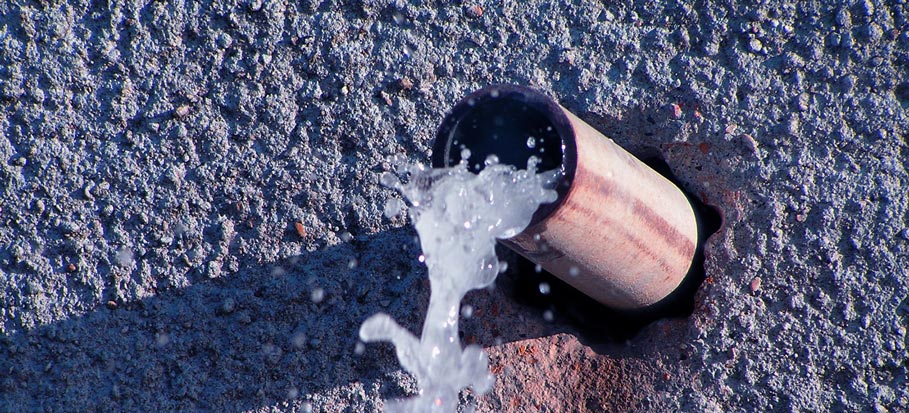The article following next relating to Hacks to detect leaks is definitely stimulating. You should read it.

Early detection of leaking water lines can alleviate a possible disaster. Some little water leakages may not be noticeable.
1. Take A Look At the Water Meter
Every house has a water meter. Inspecting it is a guaranteed manner in which helps you discover leaks. For starters, turn off all the water sources. Ensure no person will certainly flush, use the faucet, shower, run the washing device or dish washer. From there, most likely to the meter and also watch if it will change. Considering that no person is utilizing it, there must be no activities. If it relocates, that shows a fast-moving leak. Likewise, if you spot no changes, wait an hour or two and check back once more. This means you may have a slow-moving leakage that might even be underground.
2. Inspect Water Consumption
Assess your water bills and also track your water intake. As the one paying it, you must notice if there are any kind of inconsistencies. If you find sudden changes, despite your usage being the same, it indicates that you have leaks in your plumbing system. Keep in mind, your water costs should fall under the very same range every month. An unexpected spike in your bill indicates a fast-moving leakage.
A steady boost every month, also with the exact same practices, reveals you have a slow leakage that's likewise gradually intensifying. Call a plumber to extensively examine your residential or commercial property, particularly if you really feel a warm area on your floor with piping below.
3. Do a Food Coloring Test
When it comes to water usage, 30% comes from commodes. If the color in some way infiltrates your dish during that time without flushing, there's a leakage between the storage tank and also bowl.
4. Asses Exterior Lines
Don't fail to remember to check your exterior water lines as well. Must water permeate out of the connection, you have a loose rubber gasket. One small leak can squander heaps of water and increase your water bill.
5. Evaluate the circumstance as well as check
Homeowners need to make it a routine to examine under the sink counters and also also inside cabinets for any kind of bad odor or mold and mildew growth. These 2 red flags indicate a leakage so timely focus is needed. Doing routine assessments, also bi-annually, can conserve you from a major trouble.
Inspect for stainings and also deteriorating as many pipelines and devices have a life span. If you suspect leaking water lines in your plumbing system, don't wait for it to rise.
Early detection of dripping water lines can alleviate a potential catastrophe. Some small water leaks may not be noticeable. Examining it is a guaranteed method that helps you find leaks. One small leakage can squander bunches of water as well as surge your water bill.
If you suspect leaking water lines in your plumbing system, don't wait for it to escalate.
How to Know If Your Home Has a Hidden Leak
Water Meter Reveals Inexplicable Water Usage
If you’d like to test whether or not there’s a leak somewhere in your home, you can do this using your water meter. Here is how to conduct the test:
Don’t use any water in your home for at least 30 minutes; this also means not turning on faucets or water-using appliances.
Go outside, and check your water meter for activity.
If your water meter shows that there was activity, even though no one was using any water, this proves that there is a leak in your home.Visible Mold or Mildew Growth
Leaks behind walls create moist, dark environments that allow mold and mildew to grow and thrive. Eventually, you might see mold growth forming on the wall closest to a hidden leak.
If mold is growing in an area that receives a high amount of moisture, such as a bathroom, it may simply be an indication that better ventilation is needed. However, if you see mold growth on a wall or the ceiling in an area where you would not expect, you probably have a hidden leak.
Musty, Mildew Odor
Sometimes you might not be able to see the mold or mildew that is growing as a result of a leak. However, the smell can give the problem away just as easily. If you catch a whiff of something musty, there’s a good chance that old water is collecting somewhere in your home that you can’t see.
Stained/Warped Walls, Ceilings, or Floors
When your home soaks up water, a variety of red flags can become visible, including ceiling stains, bubbling drywall, warped walls, and sagging floors. While these issues can be caused by excess humidity, they can also be signs that a pipe or plumbing connection has started leaking behind your walls.
Inexplicably High Water Bill
After a while, you get a general sense for what your water bill should be. If you own a pool or sprinkler system, your bill will tend to be higher during summer. However, if you receive a water bill that seems especially high, and you can’t figure out what caused it, then you may have a hidden leak somewhere that’s increasing your bill.
https://www.plumbingjoint.com/blog/2019/july/how-to-know-if-your-home-has-a-hidden-leak/

As a keen person who reads on Detecting hidden plumbing leaks, I thought sharing that post was smart. Liked our blog entry? Please share it. Help someone else locate it. I take joy in reading our article about Hacks to detect leaks.